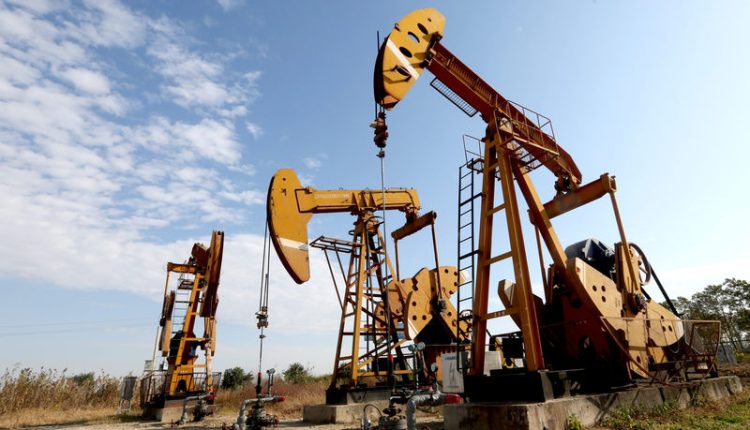© Reuters. FILE PHOTO: Crude oil storage tanks are seen from above at the Cushing oil hub, appearing to run out of space to contain a historic supply glut that has hammered prices, in Cushing, Oklahoma, March 24, 2016. REUTERS/Nick Oxford//File Photo
By Robert Harvey
LONDON (Reuters) -Oil prices rose on Friday as renewed global supply concerns from Russia’s fuel export ban counteracted fears that slowing economies and high interest rates could crimp demand.
futures were up 78 cents, or 0.84%, at $94.08 a barrel by 1443 GMT, while U.S. West Texas Intermediate crude (WTI) futures rose by $1.02, or 1.14%, to $90.65 a barrel.
For the week, both benchmarks were relatively flat, after rising more than 10% in the previous three weeks on concerns about tight global supply.
Russia’s Transneft suspended deliveries of diesel to the key Baltic and Black Sea (NYSE:) terminals of Primorsk and Novorossiysk on Friday, state media agency Tass said.
Russia temporarily banned exports of gasoline and diesel to all countries outside a circle of four ex-Soviet states with immediate effect to stabilise the domestic fuel market, the government said on Thursday, without a specified end date.
The ban will “bring new uncertainty into an already tight global refined product supply picture and the prospect that the impacted countries will be seeking to bid up cargoes from alternative suppliers,” RBC said in a note.
Russian wholesale gasoline prices were down nearly 10% and diesel down 7.5% on Friday on the St. Petersburg International Mercantile Exchange.
But macroeconomic headwinds continue to weigh on oil demand sentiment.
“It is signals on the demand side that are mainly likely to affect oil prices in the short term,” Commerzbank (ETR:) analysts said in a note.
The euro zone economy is likely to contract in the third quarter, according to Purchasing Managers’ Index (PMI) data released on Friday.
A contraction in UK economic activity deepened further in September compared to August, additional PMI data showed.
The U.S. Federal Reserve on Wednesday maintained interest rates, but stiffened its hawkish stance, buoying fears that higher rates could dampen economic growth.
“Progress on inflation is likely to be slow given the current level of monetary policy restraint,” Fed Governor Michelle Bowman said on Friday. “Energy prices could rise further and reverse some of the progress we have seen,” she added.
U.S. offline refinery capacity was expected to reach 1.4 million barrels per day (bpd) this week according to IIR Energy versus 800,000 bpd offline last week.
Read the full article here

